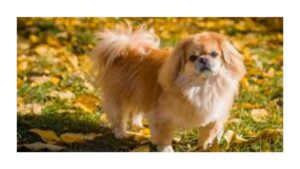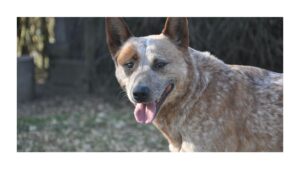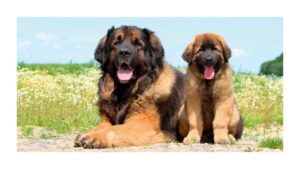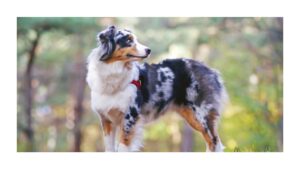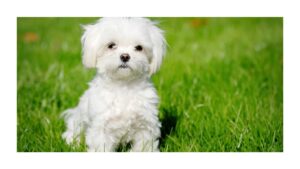Bulldogs are one of the most recognizable and beloved dog breeds around the world. With their muscular build, wrinkled faces, and unique personalities, they have a special place in the hearts of dog lovers. Whether you’re considering adopting a bulldog or simply want to learn more about these charming companions, this guide provides a comprehensive look at all things bulldog. From their history and types to health care tips and personality traits, we cover everything you need to know about bulldogs.
1. History and Origin of Bulldogs
The bulldog’s history dates back to ancient times, with the breed’s origins tracing to England. Initially, bulldogs were bred for bull-baiting, a cruel sport that involved dogs attacking bulls. The breed was known for its courage, strength, and tenacity, which made them ideal for this brutal activity.
However, with the ban on bull-baiting in 1835, bulldogs transitioned into companion animals. Over time, breeders selectively bred bulldogs to reduce aggression and emphasize a more gentle temperament, creating the friendly, loyal pets we know today.
While the modern bulldog’s role has shifted significantly, their distinctive appearance and hearty constitution remain key features of the breed.
2. Types of Bulldogs
There are several types of bulldogs, each with its unique traits and characteristics. The most commonly recognized are the English Bulldog, the French Bulldog, and the American Bulldog.
- English Bulldog: Known for their loose, wrinkled skin and distinctive pushed-in face, English Bulldogs are the most iconic type. They are typically calm, affectionate, and good with children, making them excellent family pets. Their stocky build and unique appearance make them easy to identify.
- French Bulldog: Smaller than the English Bulldog, the French Bulldog is known for its large bat-like ears and compact size. French Bulldogs are friendly, playful, and highly social, and they make great pets for apartment dwellers due to their small size and low exercise requirements.
- American Bulldog: Larger and more athletic than their English and French counterparts, American Bulldogs are energetic, protective, and intelligent. They excel in various dog sports and make excellent family pets due to their loyalty and protective nature.
- Other Variants: In addition to these three main types, there are also specialized bulldogs such as the Olde English Bulldogge and the Miniature Bulldog, which are bred for specific characteristics, including size and temperament.
3. Bulldog Personality and Temperament
Bulldogs are known for their distinctive personalities. Despite their tough appearance, bulldogs are often gentle giants. They are affectionate, loyal, and make excellent companions for families, singles, and seniors alike. Here’s a breakdown of what you can expect from a bulldog’s temperament:
- Calm and Laid-back: Bulldogs, especially English Bulldogs, are often described as couch potatoes. They prefer lounging around the house and are not overly active compared to other breeds.
- Loyal and Protective: Bulldogs are deeply loyal to their families. They tend to bond strongly with their owners and may be protective of their home and loved ones. However, they are typically not aggressive and respond well to positive reinforcement training.
- Friendly but Independent: Bulldogs enjoy socializing but tend to be independent. While they love attention, they don’t constantly demand it, and they are comfortable with some alone time.
- Good with Kids and Other Pets: Bulldogs, especially the English and French varieties, are known to be excellent with children and can coexist well with other pets, including cats and dogs. Their calm nature makes them ideal for families.
4. Bulldog Health and Care
Like all breeds, bulldogs have specific health considerations. Due to their distinct physical characteristics, they are prone to a few health issues that require extra attention and care.
- Brachycephalic Syndrome: Bulldogs have a flat face, which can cause breathing problems. This is known as brachycephalic syndrome, and it means bulldogs may struggle with heat regulation and may have difficulty breathing during intense physical activity. Owners should avoid exposing them to extreme heat and ensure they don’t overexert themselves.
- Hip and Joint Problems: Due to their muscular build and weight, bulldogs can experience joint issues such as hip dysplasia and arthritis, particularly as they age. Regular checkups with a vet and maintaining a healthy weight are essential to managing these issues.
- Skin Care: Bulldogs are prone to skin infections, particularly in the folds of their skin. Regular cleaning and drying of these folds are important to prevent moisture buildup and bacteria growth.
- Weight Management: Bulldogs are known for their love of food, so it’s important to regulate their diet to prevent obesity. Feeding them a balanced diet and ensuring they get adequate exercise is vital for maintaining a healthy weight.
- Regular Vet Visits: Routine visits to the veterinarian are crucial for managing health issues, particularly because bulldogs can be prone to respiratory, skin, and joint problems.
5. Grooming a Bulldog
Bulldogs have a short coat, which makes grooming relatively easy compared to other breeds with longer hair. However, they do require regular maintenance to keep their skin and coat healthy.
- Brushing: Bulldogs should be brushed regularly to remove loose hair and keep their coat shiny. A gentle brush or grooming mitt works well to remove dead hair.
- Bathing: Bathing a bulldog every few weeks is recommended to keep them clean and fresh. Be sure to use a dog-friendly shampoo to avoid skin irritation.
- Cleaning Skin Folds: Bulldogs, especially English Bulldogs, have deep skin folds, particularly around their face. These folds need to be cleaned regularly with a damp cloth to prevent moisture buildup and bacterial infections.
- Nail Trimming: Bulldogs’ nails should be trimmed regularly to prevent them from becoming too long. If you’re not comfortable doing this yourself, a professional groomer can assist.
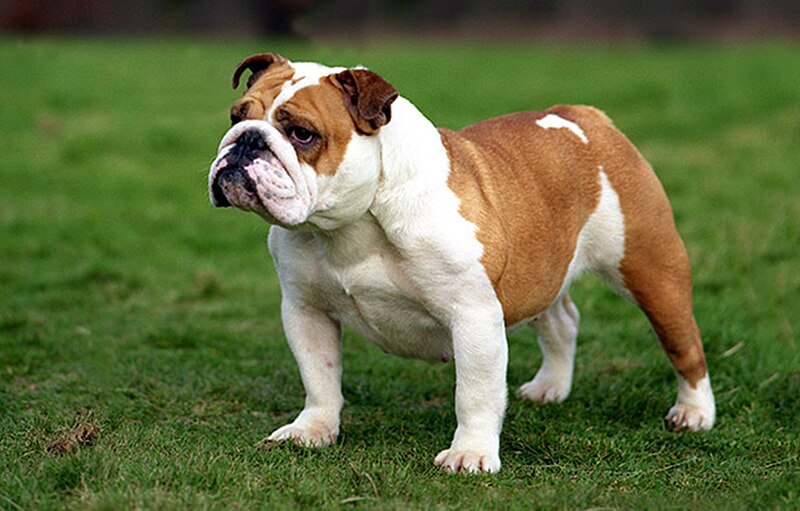
6. Bulldog Training and Socialization
Training a bulldog requires patience, consistency, and positive reinforcement. Bulldogs are intelligent but may be a bit stubborn, which can sometimes make training a challenge. Here are some tips to help with training and socialization:
- Start Early: Begin training your bulldog as early as possible. Socialization with other dogs, animals, and people is key to raising a well-behaved pet.
- Positive Reinforcement: Bulldogs respond well to positive reinforcement techniques, such as praise, treats, and toys. Avoid harsh methods, as they can be counterproductive and cause anxiety.
- Basic Commands: Start with simple commands like “sit,” “stay,” and “come.” Bulldogs can learn basic obedience commands fairly easily if they’re rewarded consistently.
- Housebreaking: Bulldogs can be stubborn when it comes to housebreaking, but with patience and consistency, they can learn. Set a regular bathroom schedule, and always praise your bulldog when they go outside.
7. Bulldogs as Pets: What to Expect
Bulldogs make excellent pets for a variety of lifestyles, from families to singles. However, owning a bulldog does require commitment and understanding of their needs. Here’s what to expect when adopting a bulldog:
- Low Exercise Needs: Bulldogs do not require extensive exercise. A few short walks and some playtime in the yard will keep them happy and healthy. They’re not suited for high-energy activities like running or hiking.
- Adaptable to Small Spaces: Bulldogs are well-suited for apartment living due to their calm demeanor and relatively low activity level. However, it’s important to ensure they have access to fresh air and are not exposed to extreme heat.
- Loyal Companions: Bulldogs are known for their loyalty and will form strong bonds with their owners. They are loving companions that enjoy spending time with their families, whether that means lounging on the couch or accompanying you on daily errands.
Conclusion
Bulldogs are unique, lovable, and often misunderstood. Despite their tough exterior, they are affectionate, loyal, and excellent companions for a variety of households. Whether you choose the English Bulldog, French Bulldog, or American Bulldog, these dogs offer unconditional love and companionship. By understanding their needs, maintaining their health, and providing them with the care they deserve, you can enjoy many happy years with your bulldog.
Owning a bulldog can be an incredibly rewarding experience, and if you’re ready for the responsibility, you’re sure to find a devoted friend for life.
SEO Optimized Elements:
- Keywords: Bulldog, English Bulldog, French Bulldog, American Bulldog, Bulldog health, Bulldog care, Bulldog personality, Bulldog training, Bulldog grooming
- Meta Description: Discover everything you need to know about bulldog. Learn about the different types of bulldog, their history, personality traits, health, grooming, and training tips in this ultimate guide.
- Internal/External Links: (Placeholder for internal links or external reputable sources)
- Image Optimization: Use appropriate, high-quality images of Bulldog with descriptive alt text for SEO.
This article is designed to be engaging, informative, and optimized for both users and search engines, while adhering to AdSense guidelines for a seamless user experience.


